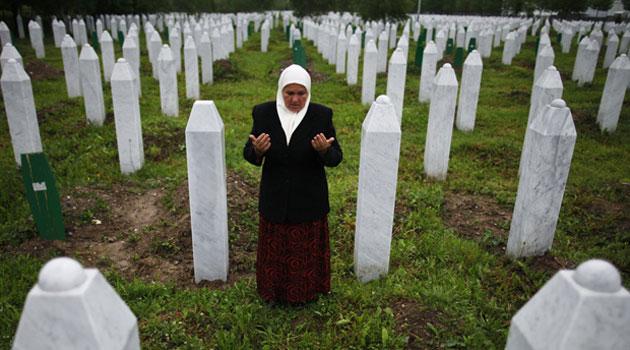Commentary: A hijacked ceremony and the moral power of the Mothers of Srebrenica

Yesterday a radical, today the PM
Vučić’s visit sparked controversy the moment it was announced. As a member of the Serbian Radical Party, he did not hesitate to publicly announce, just a few days after the 1995 events at Srebrenica, that "For every Serb killed we will kill 100 Muslims," something a group attending Saturday’s commemoration reminded him of by carrying a big banner bearing those words.
In recent years, Vučić seemed to have turned over a new leaf, at least superficially, by joining the newly-created Serbian Progressive Party in 2008 and evolving from denying the genocide to a position acknowledging that Srebrenica was a "horrible crime". The fact that he came to the commemorative event was generally evaluated by the Western media as a conciliatory gesture.
At the commemoration, former US President Bill Clinton called in his speech for those in attendance not to hesitate to shake the Serbian PM’s hand. However, some in attendance perceived the PM’s participation as a provocation at the very least.
The Serbian Government, including Vučić, continues to reject the notion that what happened at Srebrenica was genocide. In the week preceding the commemorative event his cabinet strongly lobbied Russia to veto a UN Security Council resolution that would have once again solidified the genocidal character of the Srebrenica events – in addition to the already-existing judgments of two international courts.
In this context one can only admire the unbelievable moral power of the Mothers of Srebrenica, an association of the surviving relatives of the victims of Srebrenica who enjoy enormous respect in Bosnia and Herzegovina and who welcomed Vučić with the words "We need tolerance". The subsequent attack on the Serbian PM was sparked by a relatively small group of persons compared to the tens of thousands present, but it significantly dominated media coverage space and overshadowed the stories of those about whom this anniversary was mainly supposed to be.
In the immediate aftermath of the attack on the Serbian PM, speculation swarmed about who initiated it and who benefited. The fact remains that a relatively small, probably well-organized core group was responsible for moving from verbal to physical abuse, while the rest of those present were onlookers.
Everything threatened to escalate those in attendance began joining in the threatening whistling and yelling and the security forces lost control of the situation. However, at that moment a local imam did a very good job of rapidly calming the whistlers through his own vigorous calls for restraint.
During the subsequent prayer there was total silence. The incident was subsequently condemned both by the Mayor of Srebrenica and by the Mothers of Srebrenica, who did not hesitate to call it an attack on their own dignity.
Victims overshadowed by politics
One cannot help but agree with them. A day that was supposed to be dedicated to the victims of what is probably the greatest incident of genocide on the continent of Europe since WWII became Aleksandar Vučić’s day instead.
He played his role to the bitter end and probably gained more than he had originally anticipated by attending the ceremony: Not only did he overshadow the actual victims, he himself became a victim. Instead of being confronted with his problematic past and with Serbia’s longtime unwillingness to accept the full extent of the events at Srebrenica, he dominated the media and public space as the one whose ostensibly sincerely-intended gesture of reconciliation was rejected.
The first buses leaving Srebrenica after the ceremony to travel through Republika Srpska (the part of Bosnia and Herzegovina dominated by Bosnian Serbs) encountered their own shower of stones as well. This, in addition to the many posters of Vladimír Putin posted along the way, was a sad end to the hijacked commemoration.